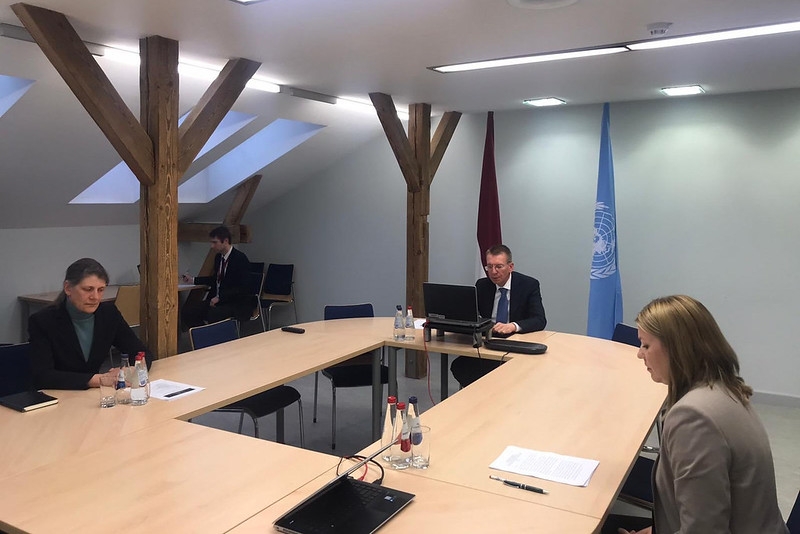On 8 May 2020, marking the 75th anniversary of the end of the Second World War, Latvian Foreign Minister Edgars Rinkēvičs took part in a gathering of the Security Council on the lessons learned from WWII in the context of international security and rule of law.
The Latvian Foreign Minister recalled that for many central and eastern European countries, the end of the Second World War did not bring liberation. In place of freedom, in fact, Latvia experienced occupation, and suffered repression, oppression and injustice under a totalitarian regime. For Latvia, World War II ended almost fifty years later. For this reason, Latvia was unable to attend the founding of the United Nations in 1945.
Edgars Rinkēvičs recognised the role which the UN plays in maintaining the international rules-based order and in preventing violations of sovereignty and territorial integrity. Minister Rinkēvičs underlined that multilateralism is an essential guarantor in the preservation of peace and security.
The Foreign Minister drew attention also to emerging threats to international security. We must be skilful, he said, in detecting and deterring hybrid threats like disinformation and we must continue to actively confront the challenges related to COVID-19. We back our neighbour, Estonia, in its energetic pursuit of these matters at the UN Security Council, including during its Presidency.
The UN Security Council is composed of fifteen countries, of which five are permanent members and ten are non-permanent members, serving for terms of two years each. Estonia became a member of the UN Security Council for the first time from 2020 to 2021. This May, Estonia has taken on the role of Presidency of the UN Security Council. Representatives of 70 countries participated in today’s virtual gathering including fifty Foreign Ministers.





